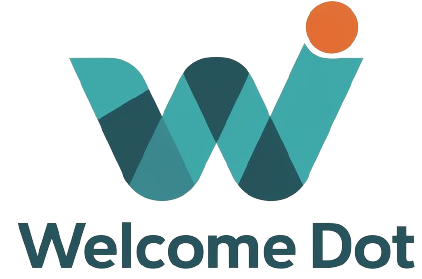
How to Become a Mortgage Loan Originator: A Comprehensive Guide
What is a Mortgage Loan Originator?
Mortgage loan originators (MLOs), also known as mortgage loan officers, play a crucial role in the home-buying process. They help buyers find suitable home loans that fit their budget and allow them to stay in their homes for the long term. MLOs work with customers to choose the right mortgage products and guide them through the application process.
The Role of a Mortgage Loan Originator
A mortgage loan originator’s primary duties involve working with potential borrowers to find the best mortgage options for their financial situation. They collect and submit borrower information to lenders, requiring strong organizational skills and attention to detail. MLOs also educate clients about different loan types, interest rates, and the overall home-buying process.
| Key MLO Responsibilities |
|---|
| Advising clients on suitable mortgage products |
| Collecting and submitting borrower information to lenders |
| Educating clients about loan types, interest rates, and the home-buying process |
| Building relationships with real estate agents for referrals |
MLOs often focus on prospecting and building relationships with commercial and residential real estate agencies to generate client referrals. Real estate agents frequently recommend mortgage professionals to homebuyers, making these connections essential for a successful MLO career.
Key Qualities for a Successful MLO
To excel as a mortgage loan originator, certain qualities can set you apart in the industry:
- Outgoing personality: Building rapport with clients and real estate professionals is crucial for generating business.
- Industry knowledge: Understanding the real estate market, mortgage products, and regulations helps MLOs provide valuable advice to clients.
- Financial stability: MLOs must demonstrate fiscal responsibility and have a clean criminal history to maintain their license and build trust with clients.
According to U.S. News & World Report, mortgage loan originator ranks as the #14 best business job, with a median salary of $64,660.
Mortgage Loan Originator Requirements
To become a licensed mortgage loan originator, individuals must meet several requirements set by the Secure and Fair Enforcement for Mortgage Licensing Act of 2008 (SAFE Act) and state-specific guidelines. These requirements help ensure that MLOs are qualified and trustworthy professionals.
Licensing and Registration
Mortgage loan originators who work for depository institutions, such as federally insured banks, savings and loans, and credit unions, must register with the Nationwide Multistate Licensing System and Registry (NMLS). State-licensed non-depository MLOs have additional requirements under the SAFE Act.
Pre-Licensing Education
Aspiring MLOs must complete at least 20 hours of NMLS-approved pre-licensing education courses. These courses cover federal and state laws, mortgage origination, ethics, and fraud prevention. Some states may require additional state-specific education, such as the 4-hour North Carolina elective course.
Passing the SAFE MLO Test
After completing pre-licensing education, candidates must pass the SAFE Mortgage Loan Originator Test, a national exam administered by NMLS. The test covers federal and state mortgage laws, mortgage origination, and ethics. A score of 75% or higher is required to pass.
Background Checks and Financial Requirements
MLO applicants must undergo a criminal background check and provide a credit report to demonstrate financial responsibility. State agencies look for signs of fiscal stability and disqualify individuals convicted of financial crimes or identity theft. While there is no minimum credit score requirement, maintaining a clean financial history is essential for obtaining and maintaining an MLO license.
Steps to Become a Licensed Mortgage Loan Originator
Becoming a licensed mortgage loan originator involves several steps, from education to testing and application. Here’s a breakdown of the process:
Obtain your NMLS Unique Identifier
Before beginning the licensing process, aspiring MLOs must obtain an NMLS Unique Identifier by creating an account on the NMLS website. This identifier is required for all mortgage professionals, regardless of their license status.
Complete Pre-Licensing Education
Enroll in an NMLS-approved pre-licensing education program, such as the 20-hour course offered by OnlineEd. These courses can be completed online in as few as four days and include state-specific electives where required.
Pass the SAFE Mortgage Loan Originator Test
Schedule and take the SAFE MLO Test at a local Prometric testing center. The exam consists of 120 multiple-choice questions covering federal and state mortgage laws, mortgage origination, and ethics. A score of 75% or higher is required to pass.
Apply for Your State MLO License
After passing the SAFE MLO Test, submit your license application through the NMLS website, along with any required fees and documentation. The state regulatory agency will review your application, background check, and credit report before granting your license.
Working as a Licensed Mortgage Loan Originator
Once licensed, mortgage loan originators can work independently or with established businesses such as banks, credit unions, or mortgage companies. MLOs who work for non-depository institutions must be licensed in each state where they conduct business, while those working for depository institutions only need to register with the NMLS.
Career Paths for MLOs
As MLOs gain experience, they may choose to specialize in certain types of loans or pursue advanced positions within the industry. Some common career paths include:
- Mortgage Broker: Manages and operates an independent mortgage business and may oversee other loan officers.
- Loan Processor: Reviews customer paperwork and conducts research to determine the customer’s qualifications for the loan.
- Depository Institution MLO: Works for a bank, credit union, or government organization and must be registered with the NMLS but does not require a state license.
Maintaining Your Mortgage License
To maintain an active mortgage loan originator license, MLOs must complete annual continuing education requirements and renew their license through the NMLS. Continuing education helps professionals stay current with industry trends, regulatory changes, and best practices. Failing to meet renewal requirements can result in the loss of the MLO license.
Mortgage Loan Originator Resources
A variety of resources are available to help aspiring and current MLOs succeed in their careers, from exam preparation to continuing education and industry news.
NMLS Resource Center
The NMLS Resource Center offers a wealth of information for mortgage professionals, including:
- MLO Testing Handbook, which contains a comprehensive outline of topics covered on the SAFE MLO Test
- State licensing requirements and regulatory agency contact information
- SAFE Act and NMLS policy updates
Exam Preparation and Continuing Education
OnlineEd offers a range of resources to help MLOs prepare for the SAFE MLO Test and maintain their licenses, including:
- Exam prep courses and study materials
- Exam simulator to practice with realistic questions
- Live instructor Q&A sessions and weekly review webinars
- Mortgage 101 Boot Camp to learn on-the-job basics, sales strategies, and customer service techniques
- NMLS exam test-taking strategies and state-specific courses like the NC SAFE Course
By utilizing these resources and staying committed to professional development, mortgage loan originators can build successful careers in this dynamic and rewarding industry.
See also:
- How to Become a Mortgage Lender: Step-by-Step Guide
- How to Become a Mortgage Loan Officer: Step-by-Step Guide
- How to Become a Mortgage Loan Officer: A Comprehensive Guide
- How to Become a Mortgage Loan Officer with No Experience: Tips & Guide
- How Much Do Mortgage Brokers Make? – [Your Blog Name]
